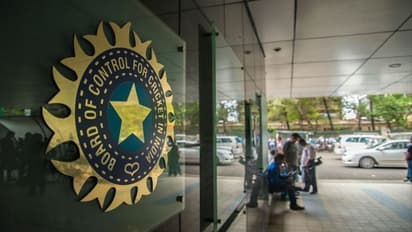BCCI's Anti-Corruption Unit needs to be restructured: Neeraj Kumar

Synopsis
BCCI has become extremely strict regarding malpractices in cricket, especially related to the corrupt approach and its Anti-Corruption Unit does the work efficiently. However, Neeraj Kumar feels that the unit needs some restructuring.
Fixing is the "proverbial tip of the huge iceberg of corruption" in cricket, and a major revamp of the Anti-Corruption Unit (ACU) in the Board of Control for Cricket in India (BCCI) to check illegal practices is the need of the hour, writes retired IPS officer and the Unit's former head Neeraj Kumar.
A 1976-batch Indian Police Service (IPS) officer, Kumar, who retired as Delhi Police commissioner in 2013, made the observations and suggestions in his 216-page book "A Cop in Cricket", summing up his three years association with the national governing body of cricket in India from 2015 to 2018. Kumar, who the Metropolitan Police of London called to advise on the security for the Olympics 2012 after the British authorities were happy about his arrangement of the Commonwealth Games 2010, feels that cricket is not just a game in India.
It is also an industry with many spin-off vocations. But not all of these vocations are clean, with fixers and charlatans getting into the mix in a significant way to bring a bad name to the game," he says. In his book, Kumar writes that during the three years he spent at the BCCI he realised that fixing was "the proverbial tip of the huge iceberg of corruption in cricket. Fixing is, in fact, a minuscule percentage of the large-scale chicanery that cricket administrators indulge in."
Kumar terms his stint in the BCCI as an "awkward phase" of his life after serving in the IPS for 37 years and said the period was marked by "ignominy, hurt and humiliation". By the end of those three years there [in BCCI], my much-celebrated career in the police seemed a distant memory. The respectability that it had fetched me appeared to have been shredded - ignominy, hurt, and unrelenting humiliation seemed my lot," he writes in the preface of his book.
Highlighting the details of the much-publicised cricket spot-fixing case in May 2013 during the Indian Premier League (IPL), which saw three cricketers and 35 bookies being arrested, Kumar says the Delhi Police operation led to more comprehensive investigations, which, in turn, led to an even more startling revelation -- team owners were also involved in match- and spot-fixing.
Referring to the subsequent events and the intervention of the Supreme Court, which first formed the Mudgal Committee in 2013 and Lodha Committee, both headed by retired judges, Kumar says it was a move to improve the functioning of the BCCI so that sporting frauds and conflicts of interest could be prevented, players' welfare improved and the board could be responsive and accountable to the public at large.
"The Lodha Committee report made pathbreaking recommendations on the structure of the BCCI, its governance, management, the creation of a players' association, conflict of interest and so on," he says, adding both the Mudgal Committee and Lodha Committee emphasised curbing corruption in Indian cricket. However, he says neither committee had anything concrete about the outfit the BCCI should put in place to achieve this end.
"...the existing structure and functioning of the ACU was not reviewed, let alone any recommendation for its strengthening or augmentation. More regrettably, neither committee recommended enacting effective legislation by lawmakers that would define terms like 'match-fixing' and 'spot-fixing', to make them criminal offences punishable under the law," he says.
Suggesting measures, Kumar says for the ACU to become an effective intelligence-gathering unit, it must act as an interface between cricket victims of fraud and the police. "To get information on the ground level on manipulative goings-on in cricket, the ACU must be perceived as a sympathetic listening post and an attempt to help those who are truly victims and not active collaborators in a scam," the book reads.
Similarly, Kumar says for the ACU to gain credibility and currency, it must intervene and disrupt unauthorised Twenty20 (T20) leagues as soon as it is tipped off on them. "The ACU's role as a security unit - the pivot around which the security infrastructure for the players and games revolves...this is an added responsibility that the unit took upon itself in late 2015. This is why hereon I will refer to the ACU as the Anti-Corruption and Security Unit (ACSU)," he said.
Kumar says security for players and anti-corruption measures are inextricably intertwined and cannot be siloed. "Another important point is that the ACSU, to be successful at all, must develop working relations with various other investigative and security agencies, notably the local police in whose jurisdictions matches are held. Local police are the most critical in the anti-corruption chain, as they can register cases and carry out investigations since the ACSU doesn't have these powers," he says.
(With inputs from PTI)
Stay on top of all the latest Sports News, including Cricket News, Football News, WWE News, and updates from Other Sports around the world. Get live scores, match highlights, player stats, and expert analysis of every major tournament. Download the Asianet News Official App to never miss a sporting moment and stay connected to the action anytime, anywhere.